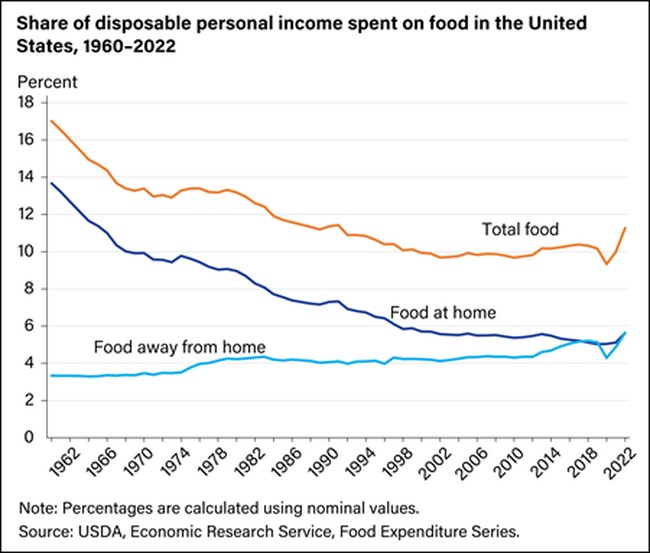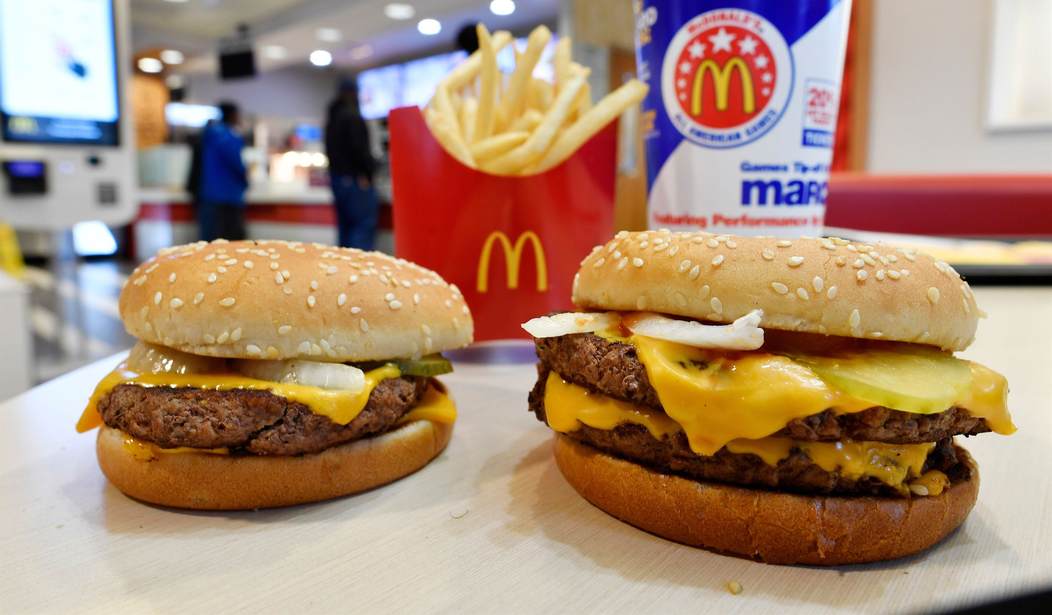Bloomberg's Bobby Ghosh wrote this week that an $18 Big Mac meal is bad for America but that doesn't go quite far enough. An $18 Big Mac meal is unAmerican. It's practically Communist, assuming you can find a decent burger and fries in a Communist country that didn't go partly capitalist like China did.
Admittedly, an $18 Big Mac meal isn't easy to find. Only one has been reported in the wild that I've read about, at a rest stop in Darien, Conn. Easier to find are Big Mac meals over $12, which is still outrageous. I didn't think things were nearly that bad — or at least not yet — here on the Front Range. But a dinner for four at a McDonald's drive-thru recently cost my little family more than $50 and three headaches caused by me bellowing, "ARE YOU KIDDING ME?" when the tally showed up on the screen.
What's increasingly difficult to find is affordable food for the masses, best represented by the fast-food burger and fries. The best measure of affordability is how much the cost of food eats up your take-home pay. According to a report Wednesday in the Wall Street Journal, it's been more than 30 years since food was this expensive.
"Even as overall inflation has eased from the blistering pace consumers endured throughout much of 2022 and 2023," the WSJ reported, "prices at restaurants and other eateries were up 5.1% last month compared with January 2023, while grocery costs increased 1.2% during the same period."
Whether or not the current trend holds — I feel that it might, but I'll get to that in a sec — it represents an undoing of many decades of progress. Since the post-WWII economic boom, Americans have enjoyed food getting cheaper and cheaper as a percentage of our earnings, even as the quality of many items has gone up. Food got so inexpensive that we started spending more and more at restaurants. That was great news for chefs, waiters and waitresses, etc.
This chart only goes back to 1960, but progress in the '50s was just as impressive.

But wow, look at what happened in 2020, the First Year of Our Absurdities. Prices shot up fast, and they shot up far. In just four years we've erased 32 years of progress.
As far as I'm concerned, the affordability of food is the best or at least the first measure of the economic health of a nation.
The reason for that is everybody's gotta eat. The less you spend on food you need, the more you have for the things you want — even if what you want most is better food. Maybe that's one reason I'm such a fan of the all-American burger and fries for lunch.
(Unlike so many people, I lost weight during the lockdowns. I'm not at all kidding when I tell you it's because I lost easy access to french fries.)
There's a low-key Bradley Cooper drama from 2015, "Burnt," that I find myself going back to every year or two. Cooper plays a world-class chef who pissed his career away on drugs, alcohol, and women, but after performing a few years of self-imposed exile is ready to return to the world of fine dining.
Watch what happens when he tells a promising young sous chef (played by Sienna Miller) to meet him at a London Burger King.
There's something noble — really! — about a Big Mac or a Whopper. There are giant corporations devoted to providing reliable, inexpensive food using the same basic ingredients peasant food has always relied on. But between the economy's continuing lockdown hangover and Bidenflation, even peasant food is getting priced out of reach for, well, us peasants. Even the peasants who occupy what we used to call the middle class, who can also no longer afford the median home or the median new car with their median incomes.As I said, it's unAmerican — and I'm sure that's no accident.
Exclusively for Our VIPs: Underappreciated Albums: 'The Dana Owens Album'










